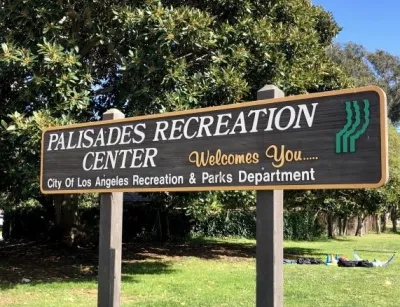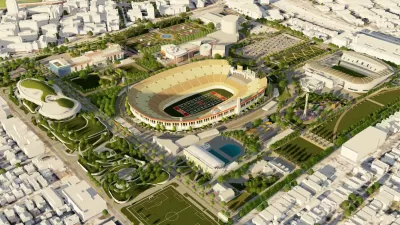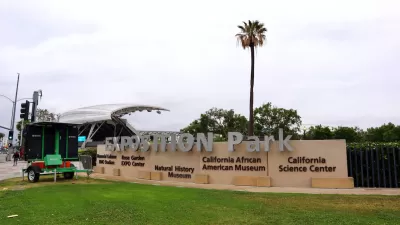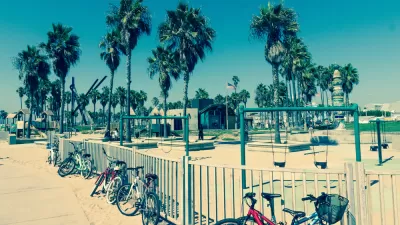Los Angeles has secured over $1.3 million in private funding to restore the Pacific Palisades playground months ahead of schedule, creating a modern, accessible space that supports community healing after recent wildfires.

Mayor Karen Bass and other Los Angeles city leaders have announced over $1.3 million in private funding to restore the Pacific Palisades playground, enabling the project to move forward months ahead of schedule. The funding includes a nearly $1 million gift from FireAid, $300,000 in-kind support from GameTime, and additional support from Banc of California’s Wildfire Relief & Recovery Fund. The project is part of the city’s broader effort to rebuild the Palisades Village, which was heavily impacted by recent wildfires, and to provide spaces for families — especially children — to recover and reconnect.
The LA Parks Foundation will oversee the revitalization effort, which marks a significant milestone in public-private collaboration. Councilwoman Traci Park highlighted the community’s strong advocacy for a safer, more accessible play area and expressed deep gratitude to the donors for making the project possible. The new playground will replace a well-loved community space that had served local families for 35 years, and its modernized design is intended to better meet today’s safety and accessibility standards.
The redesigned playground will feature two adjacent areas for children aged 5 to 14, complete with rubber surfacing, integrated shade structures, and a special play fire truck honoring local first responders. The project has received enthusiastic support from city departments and local community leaders, including the Palisades Park Advisory Board, who view it as a symbol of resilience and healing. The upgraded space will provide a much-needed recreational hub for families and young people, playing a vital role in restoring a sense of normalcy and unity in the Palisades community.

Study: Maui’s Plan to Convert Vacation Rentals to Long-Term Housing Could Cause Nearly $1 Billion Economic Loss
The plan would reduce visitor accommodation by 25,% resulting in 1,900 jobs lost.

North Texas Transit Leaders Tout Benefits of TOD for Growing Region
At a summit focused on transit-oriented development, policymakers discussed how North Texas’ expanded light rail system can serve as a tool for economic growth.

Why Should We Subsidize Public Transportation?
Many public transit agencies face financial stress due to rising costs, declining fare revenue, and declining subsidies. Transit advocates must provide a strong business case for increasing public transit funding.

How to Make US Trains Faster
Changes to boarding platforms and a switch to electric trains could improve U.S. passenger rail service without the added cost of high-speed rail.

Columbia’s Revitalized ‘Loop’ Is a Hub for Local Entrepreneurs
A focus on small businesses is helping a commercial corridor in Columbia, Missouri thrive.

Invasive Insect Threatens Minnesota’s Ash Forests
The Emerald Ash Borer is a rapidly spreading invasive pest threatening Minnesota’s ash trees, and homeowners are encouraged to plant diverse replacement species, avoid moving ash firewood, and monitor for signs of infestation.
Urban Design for Planners 1: Software Tools
This six-course series explores essential urban design concepts using open source software and equips planners with the tools they need to participate fully in the urban design process.
Planning for Universal Design
Learn the tools for implementing Universal Design in planning regulations.
City of Santa Clarita
Ascent Environmental
Institute for Housing and Urban Development Studies (IHS)
City of Grandview
Harvard GSD Executive Education
Toledo-Lucas County Plan Commissions
Salt Lake City
NYU Wagner Graduate School of Public Service





























